"Since there's no space in this room, my friends have to pray on the bed," the Malaysian university lecturer and part-time travel vlogger said with a laugh in her YouTube video.
Like Paiz, many Muslim travellers often experience the difficulty of finding a proper venue for salah, or ritual prayers which are performed multiple times every day, even on vacation.
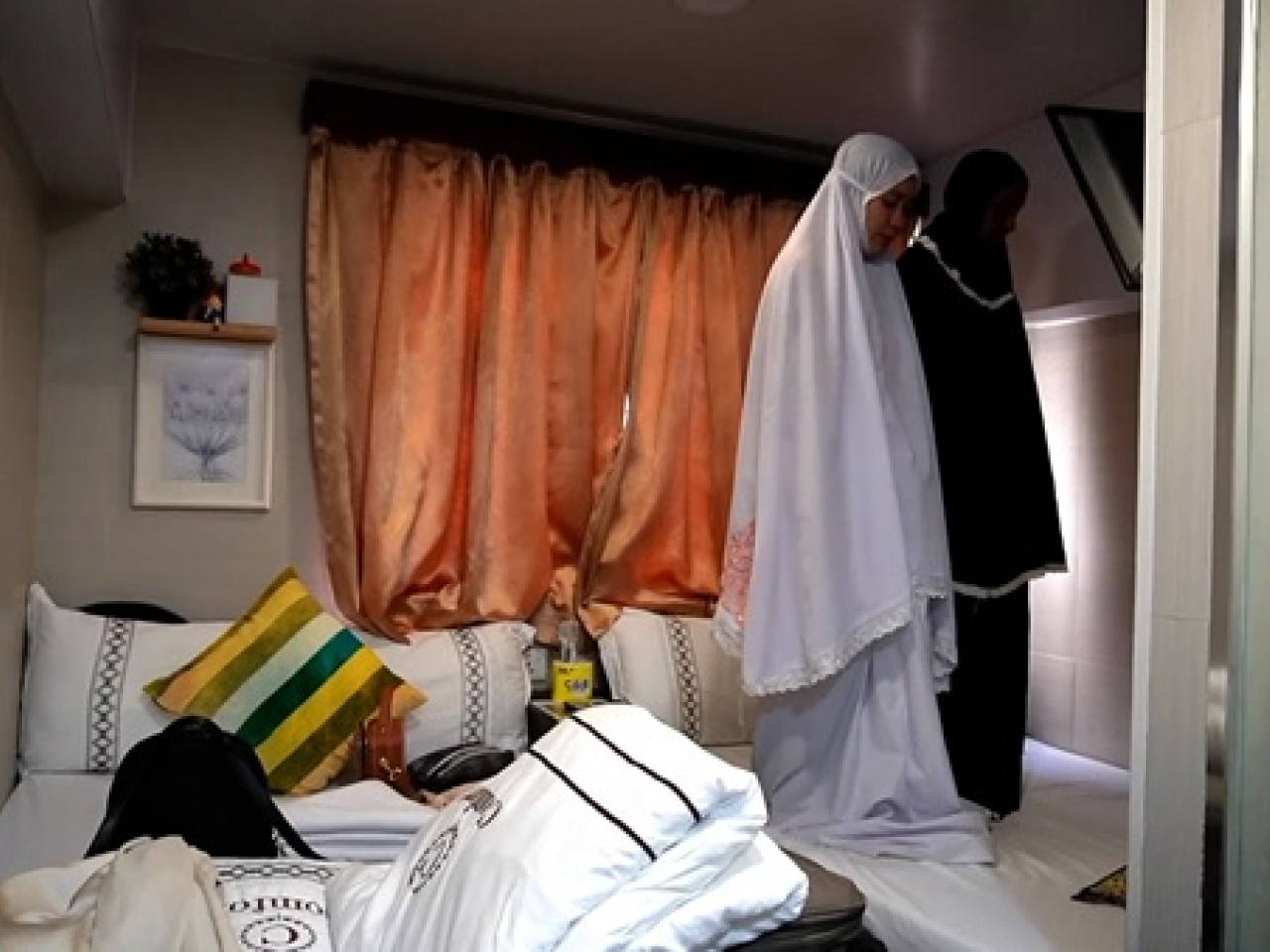
From Japan, Australia and China, to more recently South Korea and Thailand, Paiz has no shortage of recommendations on scenic landscapes or authentic local dishes.
But what often goes unseen is the quiet effort to find a clean, private place to pray.
As a practising Muslim, Paiz performs five prayers a day, but she squeezes it down to three sessions while travelling.
Still, the question remained during her five-day trip to Hong Kong in July last year: where should she and her friends pray?
Seeking out local mosques is one option. Others, like Paiz, make do with their hostel rooms.
"It doesn't matter where we go, we could pray anywhere," she said.
Location aside, Muslims must adhere to several requirements.
They must face the direction towards the Kaaba, the sacred structure at the heart of Islam's holiest mosque in Mecca. The space should also be clean, and before they start praying, they have to cleanse their body in a ritual called wudu.
Paiz recalled one time in Australia when she ended up praying in a fitting room of a clothing store.
"It works, although it's not ideal," she said. "I mean, in theory, in practical terms... yeah, it's not that clean. So that's why we bring a mat — we pray on the mat. I'll always carry mine. When I pray, especially if I have to sit on the floor, I don't sit directly on it — the mat goes down first."
Even finding a place to perform wudu can be tricky.
"In a non-Muslim country, like Australia for example, I wanted to pray but there was no place to take ablution," she said. "So I went to the female toilet, and of course I had to take off my scarf, wash myself — and yeah, some women would look at me like, 'What are you doing?' You know, give me that look. But I just... you know, whatever. I'm just doing my own thing."
She said designating a small, quiet room for prayers can make all the difference for Muslim travellers.
"Of course, it will be cool to have many prayer facilities, right? It will be easier for us, for all Muslims."
A City Making Progress
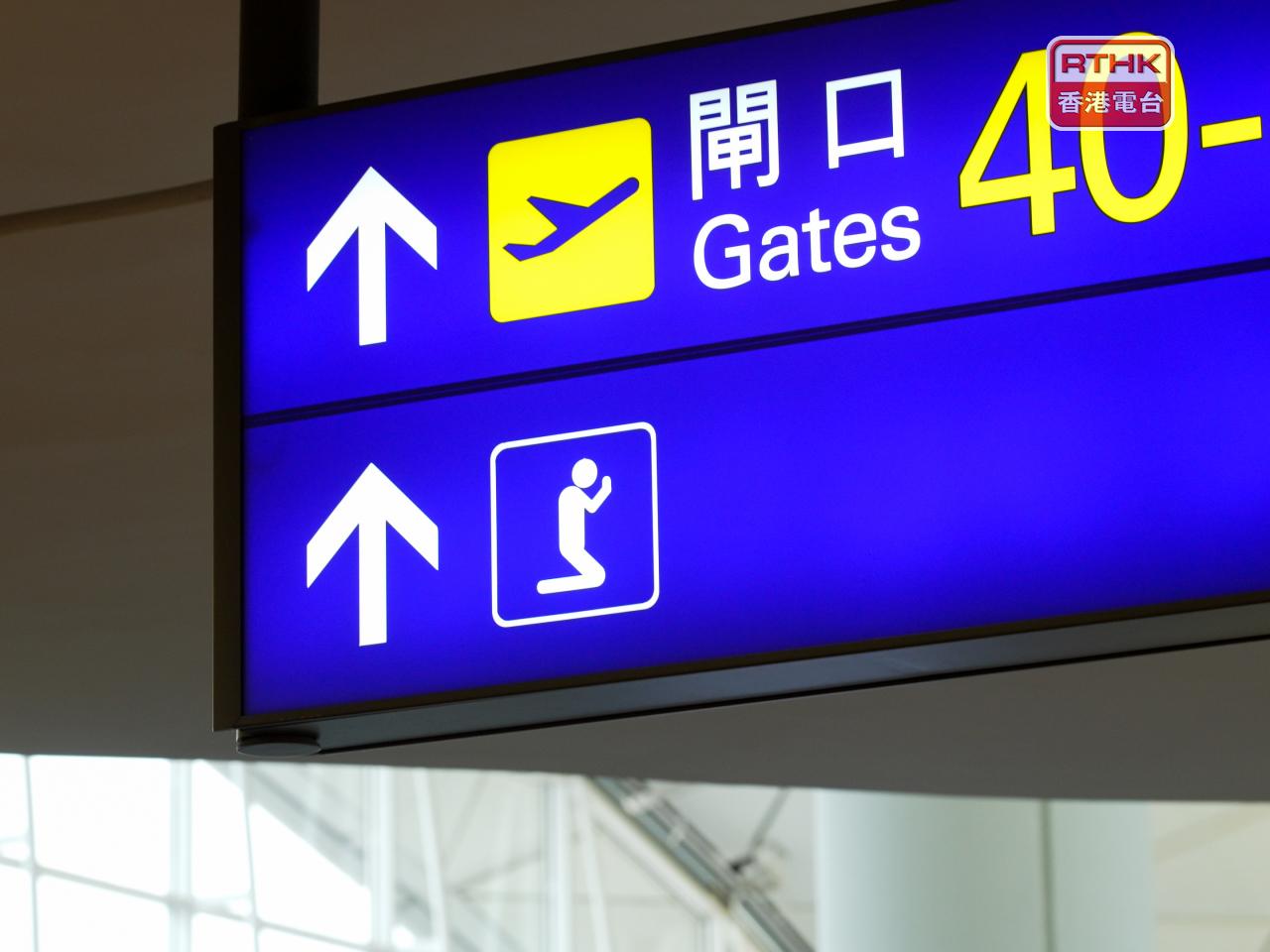
Not long ago, prayer spaces in Hong Kong were few and far between. That's slowly changing -- especially since Chief Executive John Lee pledged in his Policy Address last year to attract more Muslim visitors.
The Hong Kong Tourism Board has since partnered with CrescentRating, a global accreditation body for Muslim-friendly travel.
The number of hotels earning Muslim-friendly accreditation jumped from 39 to 62 in just one year, a 59 percent boost.
On a scale of one to seven, most establishments received a score of three - indicating a basic level of services catering to Muslim guests. Eight hotels were awarded a score of five.

CrescentRating founder and CEO, Fazal Bahardeen, explained they looked at several factors such as the environment and services. One key attribute, he said, is prayer accessibility.
"For example, do they provide prayer direction markers in hotel rooms?" he said. "We also look at whether the washrooms are water-friendly — because Muslims perform ablution, or wudu, before each prayer."
Hotels with higher scores often provide prayer rugs, Qurans, and halal-certified meals. Bahardeen said they also plan to accredit more attractions, malls, and conference venues, while educating the industry on the needs of Muslim travellers.
"People have misunderstandings. They think it's some kind of religious travel, which is not. It's leisure travel. It's just trying to solve their day-to-day needs," he said. "Education is really key in terms of understanding the needs and catering to this market."
Despite the learning curve, Bahardeen believes Hong Kong’s progress has been impressive.
"We started with the [hotel accreditation] programme around last May and June. It has been really a very amazing progress that Hong Kong has done within a very short time," he said.
A Growing Network of Prayer Spaces
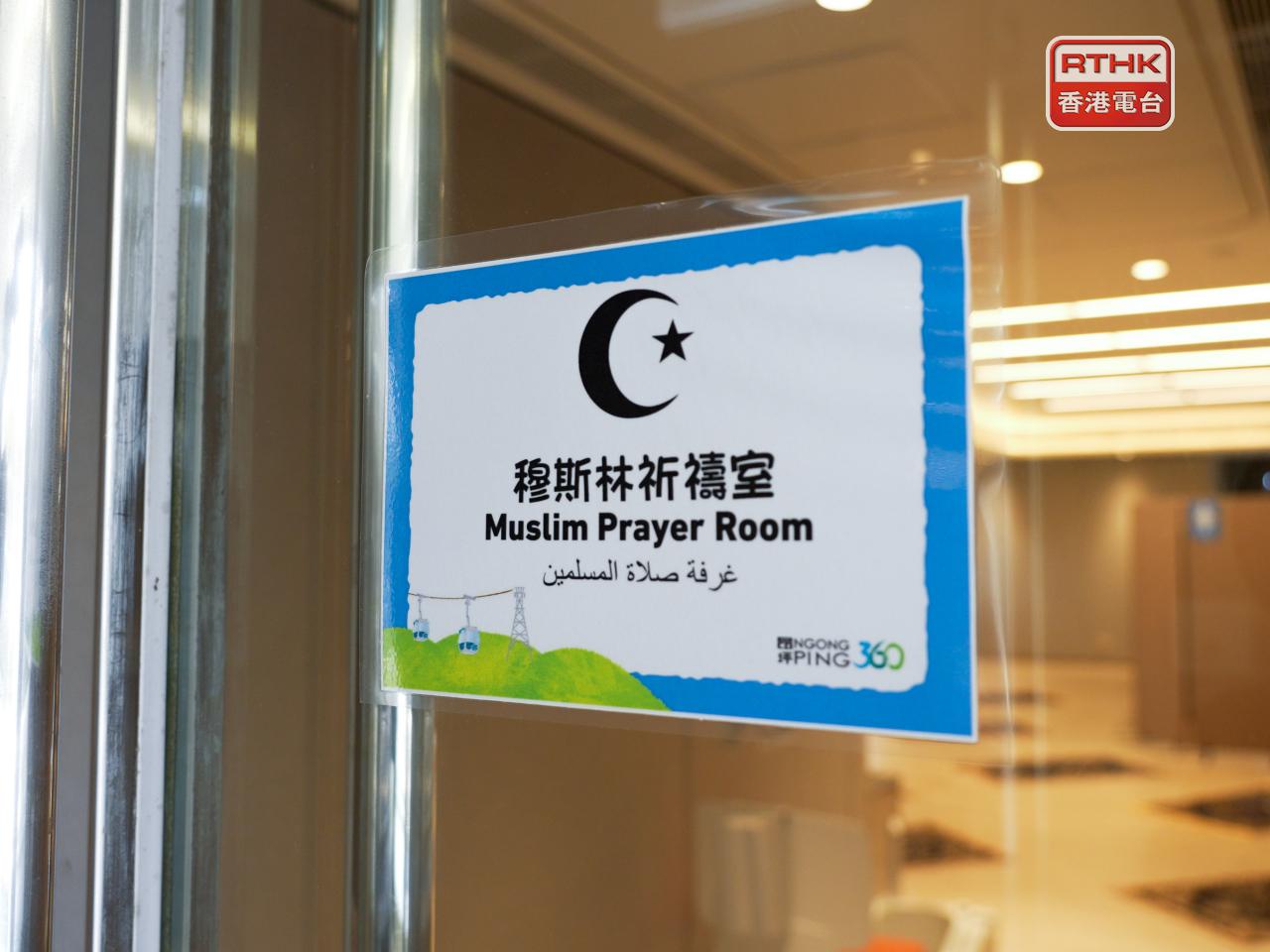
It's not just hotels which are eyeing a slice of the pie. Major attractions and venues have all taken steps to calibrate their guest experience for Muslims.
Hong Kong Disneyland now offers halal meal options at its certified restaurants, coupled with prayer and wudu facilities.
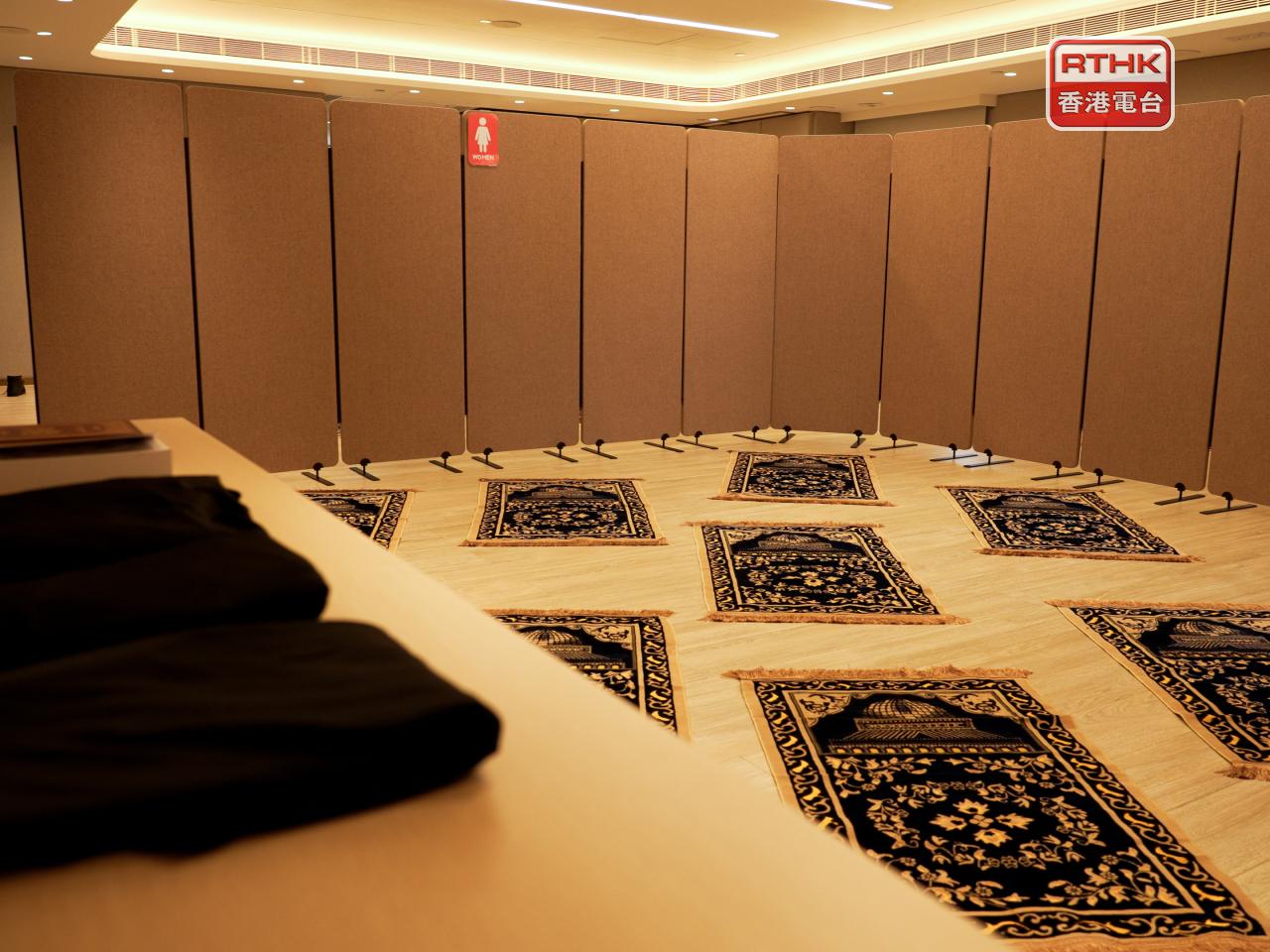
Ngong Ping Village near the Big Buddha offers separate prayer rooms for men and women, complete with amenities such as prayer mats, Qurans and direction markers, while garments are offered for female guests if needed.
Ablution facilities, water-friendly washrooms, and a Halal-certified Middle Eastern restaurant are also available.
At Hong Kong International Airport, multi-faith prayer rooms spread across the terminals are open round the clock. These rooms include Qibla direction markers and ablution basins.
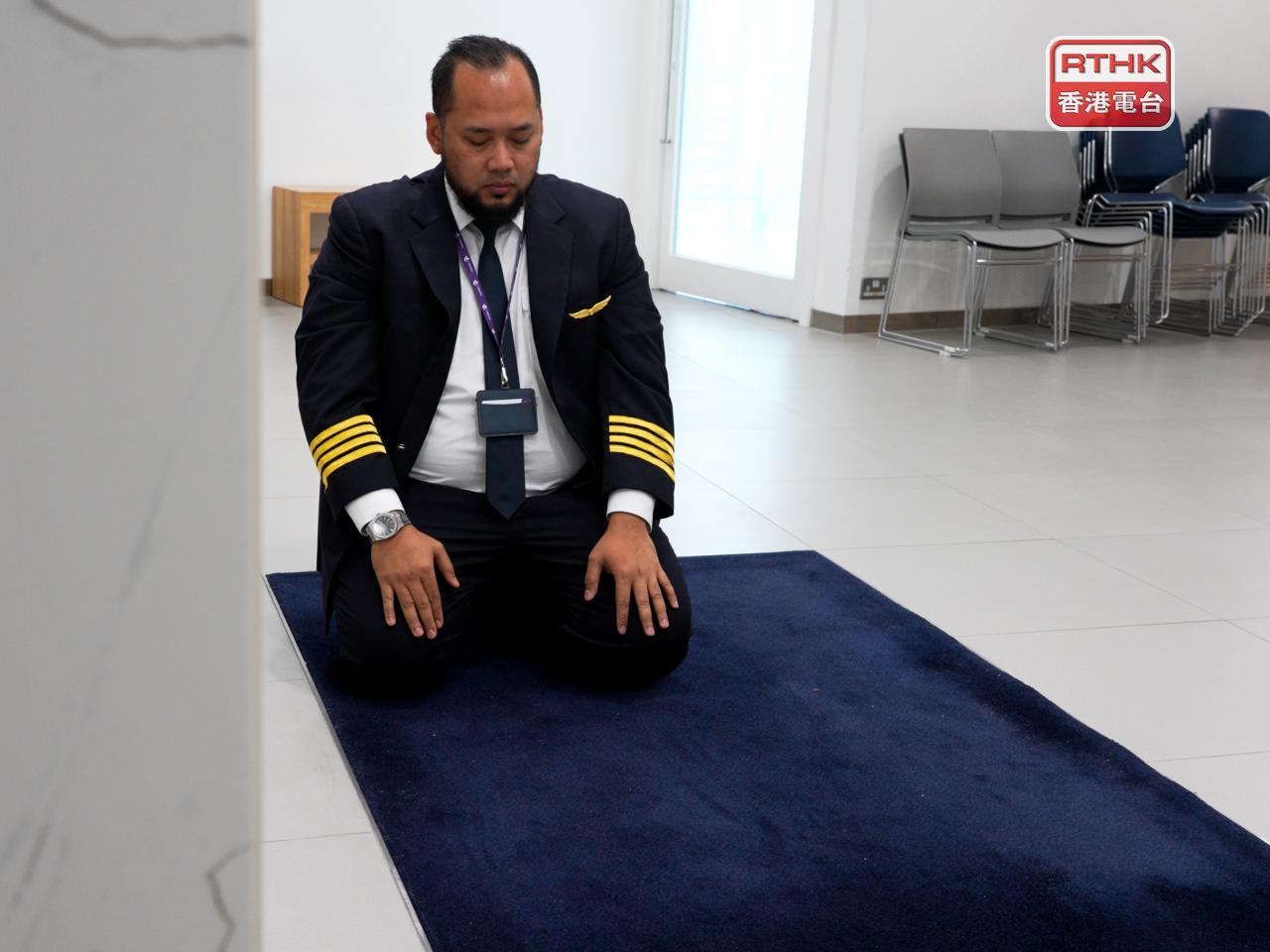
The Global Picture
All these efforts by Hong Kong's tourism trade didn't go unnoticed. In the latest Global Muslim Travel Index by CrescentRating, the city was named the "most promising" Muslim-friendly destination, and one of the top three non-Muslim-majority markets.
Bahardeen noted Muslims are one of the fastest-growing demographic segments in global tourism. According to Crescent Rating, the number of outbound Muslim visitors is projected to grow to 245 million by 2030, a 39 percent surge compared to 2024.
Bahardeen urged cities like Hong Kong to focus their efforts on high-traffic places like shopping malls and tourist attractions.
"It's not like trying to set up a mosque on a street — that's a lot more difficult," he said. "Setting up a prayer room in a shopping mall or attraction is much easier."
"You really need only a very small, very small room for a prayer place," he added. "Two metres by two meters would do, actually — just enough for somebody to go and pray, you know."
A Good Start
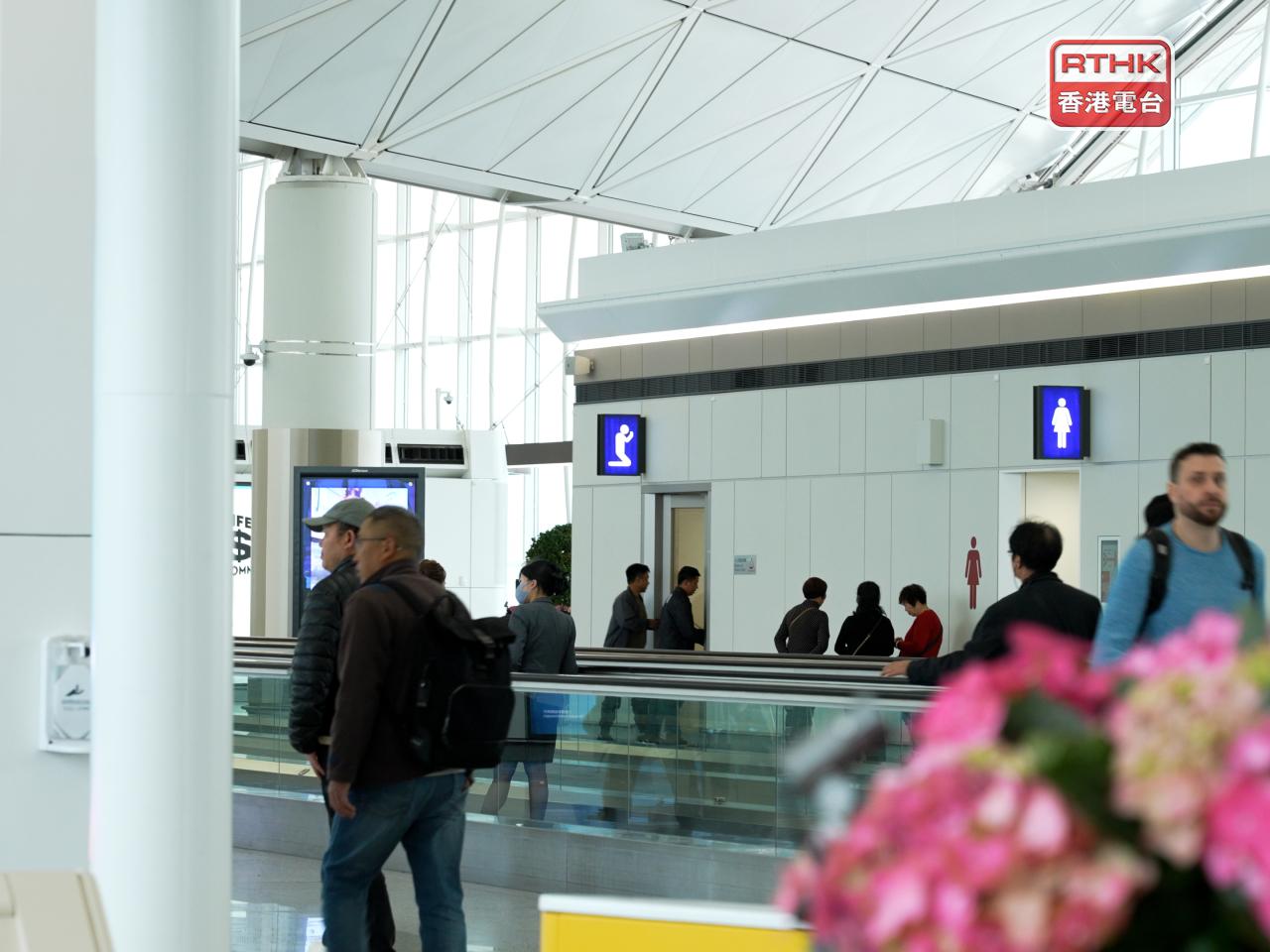
Paiz also acknowledged the city's efforts to become more accommodating to Muslim travellers.
"Of course there's still room for improvement, but honestly it's a good start," she said.
"I'll give [my trip in Hong Kong] an 85 (out of 100). Overall, we had a good experience. The people are nice. That's why if I have the opportunity, I will go back again."
In a world where small gestures go a long way, offering a quiet and clean space to pause and pray — even for just a few minutes — might just be enough to make Muslim travellers feel genuinely welcomed.







